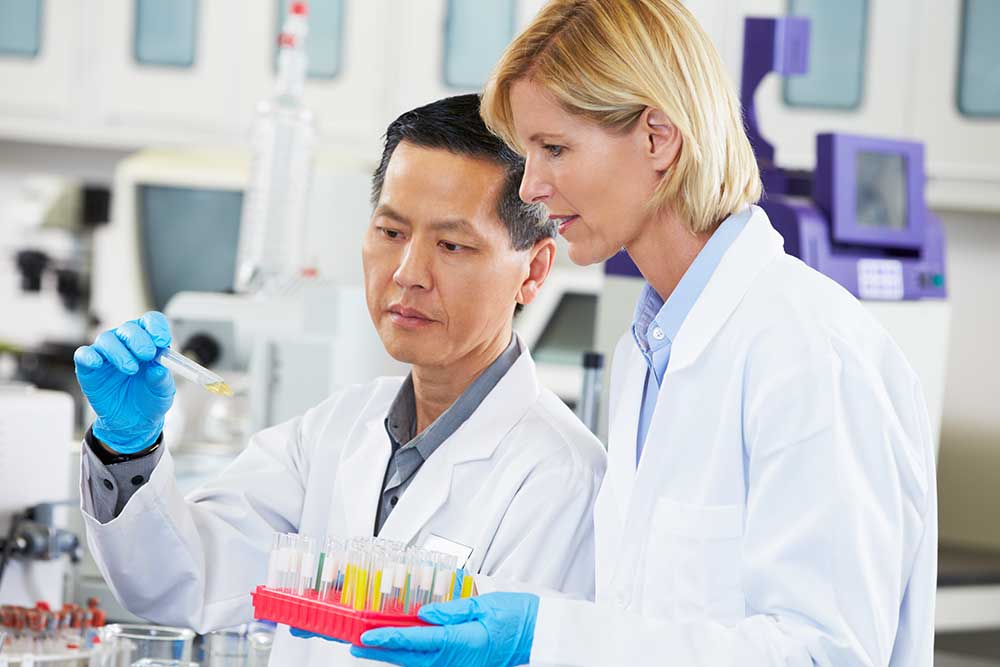Disclaimer: The information on our website is provided for general information purposes only. We make no representations or warranties of any kind, express or implied, about the completeness, accuracy, reliability, suitability or availability with respect to the website or the information contained on our website for any purpose. Any reliance on such information is therefore strictly at your own risk and we are not liable for any damages or losses arising out of or resulting from your reliance on any information contained on our website.
A biophysicist is a scientist who uses physics to study biological systems using an interdisciplinary approach. Studies from molecules to organisms are conducted, analyzed, and interpreted for scientific evidence in proving or providing information for the greater good of medicine or science. Watch a video to learn what a biophysicist does:
How to Become a Biophysicist

To become a biophysicist you must earn a bachelor’s degree in chemistry, mathematics, or physics. With a bachelor’s degree one can work as a technician or assistant. However, if you want to earn the title of a biophysicist, you must continue your education and go on to earn a master’s degree. This allows you to work in applied research and product development, only after earning a doctorate degree can you work independently as a scientist.
Many people gain experience by obtaining an internship or fellowship within a biophysics laboratory while earning their degree. Programs also require students to write a thesis prior to graduating, in addition to defending it in front of academic professors or scientists that specializes in the chosen topic. The Swiss Federal Institute of Technology offers a free Cellular Mechanisms of Brain Function course on EdX.org. Also, you will have the option to pay a small fee to receive a certificate upon completion.
Job Description of a Biophysicist
A biophysicist learns about organisms through the use of physics and biology. Sometimes this is also known as molecular science because the primary goal is to understand and interpret varies biological functions and interactions at a molecular level. Biophysicists mostly work in laboratories to conduct their research. They collect, analyze, and interpret research. At times they may also manipulate their studies to see differing factors that affect molecular development on organisms. They use instruments and scientific machines that can be altered and gives them the ability to change research variables.
A biophysicist must be able to problem solve and be analytical thinkers. Some biophysicists also elect to teach graduate students at universities or other postsecondary schools. Biophysicists often times publish or present their finding in scientific reports or publication or a captive audience. Biophysicists can be employed by private research institutions, government, universities, or industrial companies.
You have learned from reading this article about what a biophysicist does and how to become one, you know it is an exciting career! We agree and want to share more about the benefits. Biophysicists love science and they also love to problem-solve. This career offers the benefit of both with the many daily challenges that come with the job. It is fascinating work and never dull! Biophysicists get job satisfaction from helping society by developing methods to overcome disease, global hunger, and renewable energy issues. They also enjoy the benefit of learning essential skills that can be useful in any career, like project management and data analysis.
Biophysicist Video Career Transcript
Researching a new medical cure, unlocking DNA’s secrets, or developing a more resilient variety of wheat… biochemists and biophysicists study living things and the processes that make them grow, change, and die. These scientists design and conduct experiments, such as testing the effects of drugs, or learning how different cells divide and grow. They may study evolution in plants and animals, nerve cell communication, or how proteins work. Advanced technology is often used on the job, including lasers and fluorescent microscopes.
Biophysicists and biochemists prepare technical reports and research papers, and may make recommendations to a research sponsor. They may also lead laboratory teams and ensure the quality of their work. Conducting scientific experiments takes accuracy and precision, as well as strong math skills, good judgment, and perseverance. The ability to communicate and work with a team is just as essential for these scientists. Biochemists and biophysicists typically work in laboratories to conduct experiments… and in offices to analyze the results.
Most work full-time and keep regular hours. Employers include research and development companies, higher education, and pharmaceutical manufacturing. Biochemists and biophysicists need a Ph.D. to work in independent research and development positions. Some entry-level positions may be obtained with a bachelor’s or master’s degree in the field.
Article Citations
Bureau of Labor Statistics, U.S. Department of Labor, Occupational Outlook Handbook, Biochemist and Biophysicist.
National Center for O*NET Development. 19-1021.00. O*NET OnLine.
The career video is in the public domain from the U. S. Department of Labor, Employment and Training Administration.

